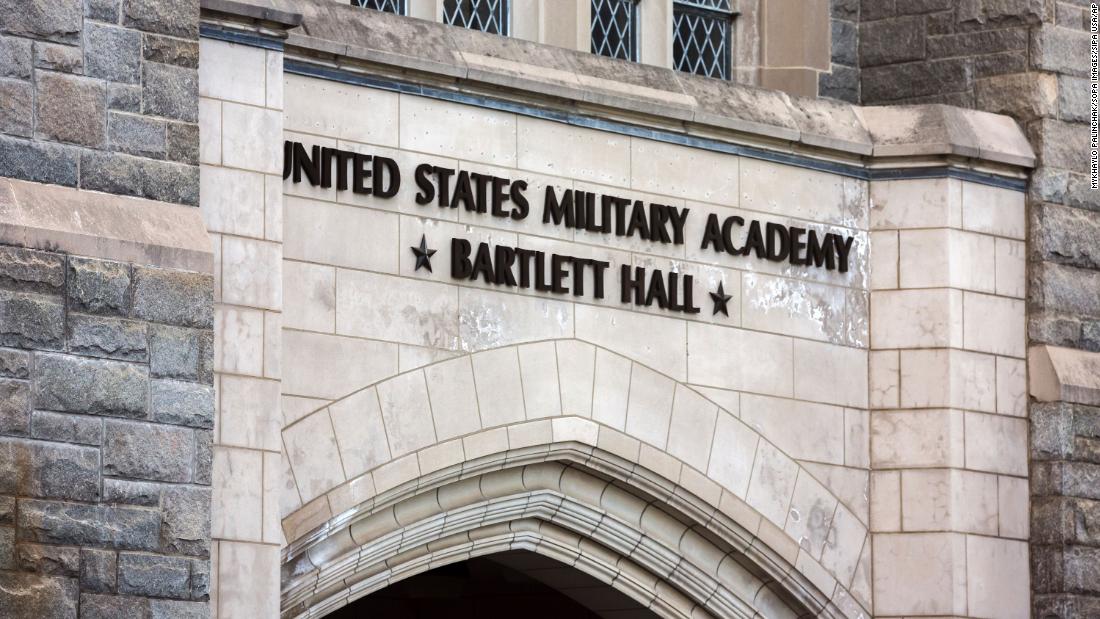The report focused on Confederate markers at both West Point in New York and the US Naval Academy in Annapolis, Maryland.
The commission said the plaque “falls outside” of its purview, because the commission is solely tasked with identifying and providing recommendations on new names for Confederate markers at military installations.
The commission urged the Secretary of Defense “to address DoD assets that highlight the K.K.K.” and “create a standard disposition requirement for such assets,” the report states.
“The marker falls outside the remit of the Commission; however, there are clearly ties in the K.K.K. to the Confederacy,” the report states.
The marker that includes the words Ku Klux Klan is a part of a larger piece of artwork, called a triptych, that appears at the entrance of Barrett Hall, the campus’s Science building. The triptych “references the history of the United States as told in bronze relief,” and has three panels, that are each 11 feet by 5 feet, the Academy’s Public Affairs office said in a statement.
The part of the artwork that shows the Ku Klux Klan member is in a “small section” on the second panel titled “One Nation, Under God, Indivisible.” The artwork, dedicated in 1965, was “originally dedicated to West Point graduates who served in World War II and Korea,” the statement added.
According to the Academy’s Public Affairs office, the triptych’s late sculptor, Laura Gardin Fraser, “wanted to create art that depicted ‘historical incidents or persons’ that symbolized the principled events of that time, thereby documenting both tragedy and triumph in our nation’s history.”
“West Point does not accept, condone, or promote racism, sexism, or any other biases. The Academy continues to graduate its most diverse classes ever with respect to ethnicity, gender, experience, and background,” the Public Affairs office said in the statement.
The US Military Academy’s Public Affairs office acknowledged they had received the naming commission’s report and said they are “reviewing the recommendations,” in an earlier statement Wednesday.
“We are reviewing the recommendations and will collaborate with the Department of the Army to implement changes, once approved,” the statement said. “West Point’s mission is to develop leaders of character who internalize Army Values, the ideals of Duty, Honor, Country, and the Army Ethic. As a values-based institution, we are fully committed to creating a climate where everyone is treated with dignity and respect.”
The renaming of bases with Confederate monikers has been a years-long process. It first became a hot button political issue in the final months of the Trump administration, when then-President Donald Trump blasted the idea, accusing others of wanting to “throw those names away.”
The commission was established in the 2021 National Defense Authorization Act, which Trump vetoed. In the waning days of his administration, Congress delivered its first and only veto override during his tenure, approving the legislation with overwhelming bipartisan support.
Outside of the KKK plaque, the commission identified 12 assets with Confederate name associations that should be renamed at West Point and three assets at the US Naval Academy.
This story has been updated with additional information Wednesday.
CNN’s Meron Gerbi-Moges contributed to this report.

